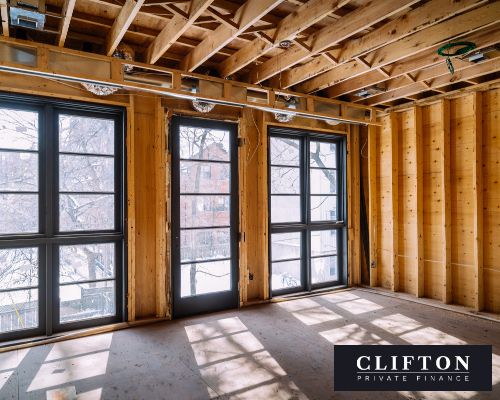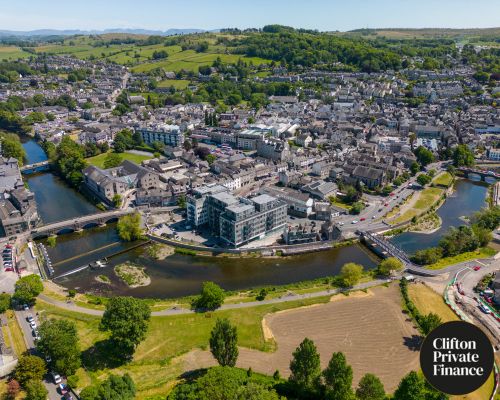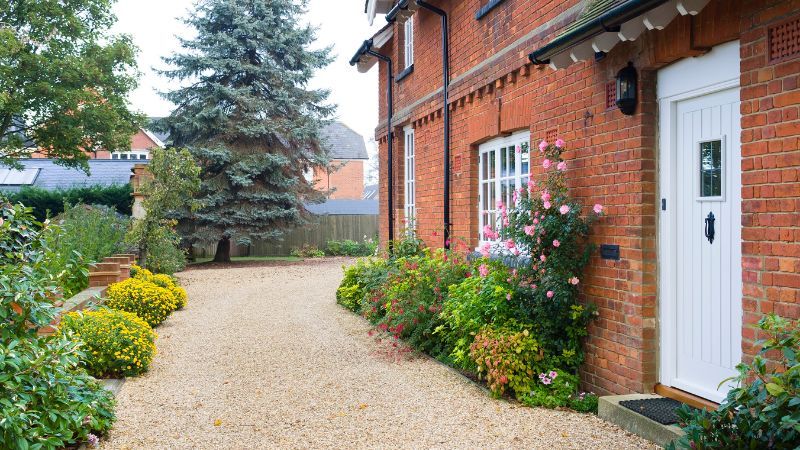Categories
How To Get A Second Mortgage To Buy, Refurbish And Sell An Investment Property

Often the challenge for any developer is finding suitable property or land at a good price. This is often the key in determining the level of return you will make on the project. Another key variable is the type of finance you use to acquire and develop the asset.
Having the right finance in place to enable you to act quickly can be the difference between a successful project and losing out on a property to another buyer.
Unless you have a significant amount of capital that you are willing to use, then you will likely need to secure additional funding from a lender.
It is not uncommon for those intending to buy, renovate and sell a property to think about raising finance through a second mortgage on an existing property they own.
Below we look at some of the options you need to consider:
Fortunately, there are faster and less expensive financial solutions available.
Don't Waste Time With Traditional Lenders
In our experience many people will approach a traditional high street lender as their first port of call. This is no surprise, considering it is likely that they have experienced a mortgage finance application with a traditional lender before.
Getting a Second Mortgage …
This may be an option if the property you are buying is currently habitable. This typically where the property is structurally sound and there is a kitchen and bathroom in the premises.
In this case getting a second mortgage through a traditional lender is more or less the same as securing a first mortgage. It is likely that you will be required to provide some or all of the following: personal information; details of the property, financial information about yourself and anyone else on the second mortgage (such as proof of earnings and credit report). A lender will look at affordability in making a decision. Does your or joint income support the monthIy repayments of the second mortgage. In getting to this point you may have to wait a couple of weeks to go through a decision in principle process. If you wish to proceed with a mortgage application you may have to wait another week to set up an appointment with an inhouse adviser.
This process takes time and will probably test your patience and simply may not be practical as time is not on your side.
Even once approved a mortgage application with a high street lender can take months to complete and for funds to be made available.
Any sort of delay can be costly and may cause you to lose out on a potentially attractive opportunity.
Avoid the Remortgaging Trap …
Others who want to raise capital to fund a purchase, development and sale of a property may think they can raise funds through remortgaging their exisiting residential property.
Refinancing your mortgage is when you get a new mortgage with either your existing mortgage company or with a new one.
The reality is that a residential lender will not be comfortable about funds raised being used for investment purposes. When you go through the remortgage process any capital raise will require a reason for the funds. Whilst home improvements may be fine depending on the lender, funds being used for a separate investment property purchase will not be.
Homeowner Loans
Another alternative method to fund your development is through a homeowner loan (often referred to as secured loans or second charge mortgages).
Homeowner loans are loans that are secured against your property and, as the name suggests, can only be obtained if you own a property and have a mortgage on it (first charge). In order to access a homeowner loan, you may need a fair amount of equity in your property already.
It should be noted that not all lenders are prepared to grant homeowner loans.
Homeowner Loans by the Lender …
This type of finance varies from lender to lender.
Loans are provided usually for any legal purpose. Finance is typically available from £25,000. What you can secure will depend on the value of your property and your existing mortgage balance.
Typically, homeowner loans are tailored to longer term borrowing. However, there are a number of lenders who are prepared to provide homeowner loans for shorter periods of time from 3 years.
A homeowner loan may be suitable where a 12 month finance facility is considered not long enough for a development project . A homeowner loan can often be repaid after 12 months without early redemption penalties although it is important to check this with the lender.
As homeowner loan criteria varies from lender to lender , it is advisable to contact a professional broker. A good broker can find deals that are suited to your circumstances.
No Need For A Second Mortgage
The term “second mortgage” is often used by people when thinking of what financial option to use for their property development but there are other types of finance available that are more suitable for buying, refurbishing and selling a property.
Bridging Finance
If you have found a property you wish to develop, then you will often need to act swiftly to avoid another developer buying the property.
The longer it takes to complete the purchase of a property then the higher the risk that you will lose it to another buyer.
Bridging finance may provide a faster route to the funding you need for your development project.
What is a Bridging Loan …
A bridging loan is a type of fast finance purposefully designed for short term use. Bridging loans can provide a large amount of capital in a short period of time.
Bridging loans may be a viable option, as they can be secured against residential property, residential property, building plots or even land without planning permission.
Unlike traditional lenders, bridging loan lenders are often prepared to grant loans for unmortgageable properties (properties without a bathroom, kitchen or under the value of £40,000).
This may be particularly useful if you are looking to purchase and develop a property in disrepair.
A bridging loan is typically arranged over 12 months. Most lenders will let you pay off the loan early if you don’t need the facility that long, so you only pay interest on the term you have the loan for. It is important to work with reputable lenders available through a good broker.
Features of a Bridging Loan …
Speed: The application process for a bridging loan can be much quicker and simpler than an application with a traditional lender. This means that bridging loan applications can be turned around fairly quickly and finance can be secured without delay. You may find a bridging loan an appropriate type of finance for your development project, especially if you need to act quickly, as some lenders are prepared to provide bridging loans within 7 working days.
Roll-up interest: Depending on the lender, bridging loans usually come with the option to defer or ‘roll-up’ the interest payments to the end of the term of finance. Delaying interest payments to the end of the term of finance may enable you to direct all your finances on your development project, helping to minimise the risk of delays throughout the development.
Exit plan: An exit plan is a requirement for every bridging loan. An exit plan is the chosen method used to repay the loan at the end of the term of finance. In your scenario, your exit plan could be to repay the loan with the proceeds from the sale of your refurbished property. The requirement of an exit plan gives piece of mind to you and the lender that the loan will be repaid.
Example Product:We work with a lender who will finance the acquisition of a property up to 75% of the purchase price on the basis the property will not be occupied by the borrower. This can be done without a formal valuation and where finance can be provided very quickly.
Refurbishment Finance
Types of Refurbishment Finance …
Refurbishment finance lenders usually will offer one of two different types of loans. The loan that is best suited for your project will depend on the refurbishment needs of the property.
Light refurbishment: Light refurbishment finance is tailored to development projects that are smaller in nature. It may be difficult to decipher the difference between large projects and smaller ones, but as a rule of thumb smaller development projects are where: no planning permission is required, the building regulations do not apply, there isn’t a change in nature of the premises, it is a non-structural refurbishment or the cost of the project is below 15% of the value of the property.
Heavy refurbishment: Heavy refurbishment finance is suited to larger developments. As a general rule, larger projects are where: planning permission is required, building regulations apply and the cost of the refurbishment is more than 15% of the value of the property.
Whether you need heavy or light refurbishment finance, it is advisable to contact a broker to find the best deal for your set of circumstances.
Example Product:We work with a lender who will finance the acquisition of a residential property up to 90% of the purchase price. This is done on the basis that post refurbishment the loan to value will be nor more than 70% loan to value. This product can be arranged very quickly and allows property investors who need to move quickly to have finance in place within 10 working days, develop and sell the property within 12 months.
Joint Venture Partners
If you are an inexperienced developer and you require a significant amount of capital for your project, then you could utilise a joint venture. A joint venture is where two or more developers pool their resources to fund a project. Although joint venture partners are prepared to provide funding to inexperienced developers, they often require a split of the profits. The are some joint venture partners that are willing to forego profit sharing on the proviso that you can contribute something, such as the property or a substantial deposit.
If you lack the experience needed to secure other types of finance then this may be a good option, as it could provide the finance your project needs in a short space of time and allow you to gain the experience necessary for other types of funding in the future.
Typically a JV lender will be looking to lend a minimum of £250,000 into a project.
Clifton Private Finance
Clifton Private Finance are a specialist property finance broker. If you need finance quickly to buy, refurbish and sell a property then we can source the right finance for you.
We have strong relationships with lenders offering all types of property development finance. Whether you have a small project or a larger development, through our connections with private banks, specialist lenders, family offices and wealth managers, we can identify and secure the best financial solution for you.















